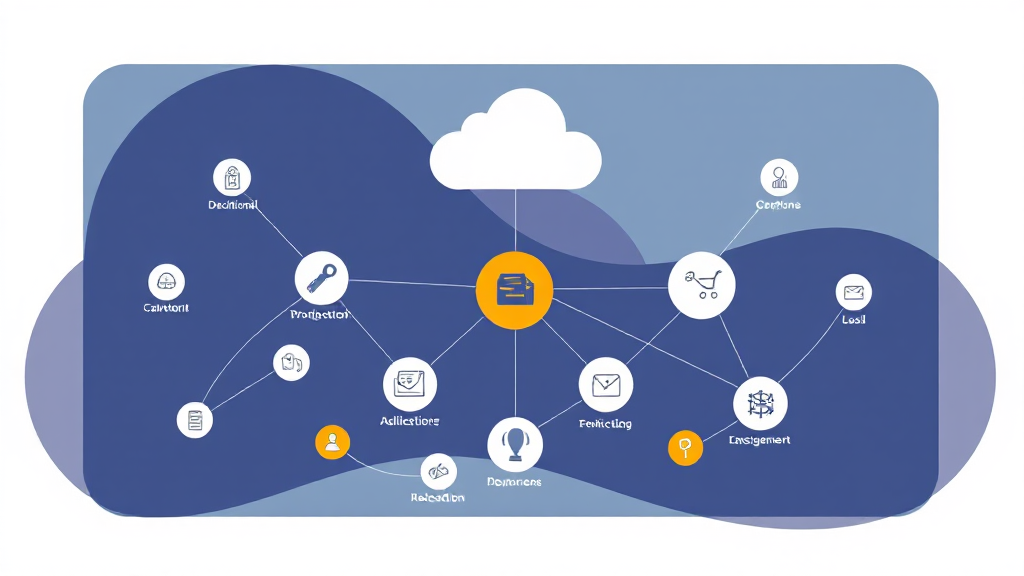Which POS System Is Right for Your Business? Traditional vs. Cloud-Based Alternatives

For a deeper dive, see our
.
This abstract visualization illustrates the decision-making process in choosing between traditional and cloud-based POS systems, highlighting resource allocation and efficiency.
Introduction
In today's fast-paced business environment powered by AI services, selecting the right Point of Sale (POS) system is crucial to streamlining operations, enhancing customer experiences, and driving revenue accessible via mobile platforms. However, businesses often face a critical decision: should they stick with traditional POS systems or make the switch to cloud-based alternatives integrated with e-commerce solutions? Both options have their unique advantages and limitations. In this article, we'll explore the differences between traditional POS systems and cloud-based alternatives, helping you determine which solution aligns best with your business needs.
What Are Traditional POS Systems?
Traditional POS systems have been the backbone of retail and hospitality operations for decades. These systems rely on physical hardware—such as cash registers, barcode scanners, and magnetic stripe readers—to process transactions. They typically operate offline, using local servers or computers to store data.
Key Features of Traditional POS Systems
Reliability Offline functionality ensures that transactions can still be processed even in the event of an internet outage.
Customization Business owners can tailor these systems to meet specific operational needs, including custom reports and integration with existing hardware.
Security On-premise servers provide a level of control over sensitive data, reducing risks associated with cyber threats.
Limitations of Traditional POS Systems
Scalability Issues Expanding operations often requires significant investments in new hardware and software.
High Costs Implementing and maintaining traditional systems can be expensive, especially for smaller businesses.
Limited Integration These systems may struggle to integrate with modern technologies like AI-driven tools or mobile payment solutions.
What Are Cloud-Based POS Systems?
Cloud-based POS systems represent the evolution of traditional POS technology. By leveraging cloud computing, these systems offer a more flexible and scalable solution for businesses of all sizes. Instead of relying on physical hardware, cloud-based POS systems operate over the internet, storing data securely in remote servers.
Key Features of Cloud-Based POS Systems
Accessibility Access your POS system from any device with an internet connection, making it ideal for businesses with multiple locations or remote workers.
Real-Time Data Cloud-based systems provide instant insights into sales performance, inventory levels, and customer behavior, enabling data-driven decision-making.
Automatic Updates Software updates are pushed automatically, ensuring you always have the latest features and security improvements.
Benefits of Cloud-Based POS Systems
Scalability Easily add new users, locations, or features without significant upfront investments.
Cost Efficiency Lower initial costs and predictable monthly subscription models make cloud-based systems more accessible to small businesses.
Integration Capabilities These systems seamlessly integrate with third-party tools like accounting software, CRM platforms, and payment gateways.
Comparing Traditional vs. Cloud-Based POS Systems
Feature Traditional POS Systems Cloud-Based POS Systems
Deployment On-premise hardware and local servers Accessed via internet; no physical hardware
Scalability Limited by hardware constraints Highly scalable with minimal infrastructure
Data Access Data stored locally; limited remote access Real-time data accessible from anywhere
Maintenance Requires regular updates and technical support Automatic updates and centralized management
Cost High initial investment; ongoing maintenance costs Lower upfront costs; predictable subscription fees
Security On-premise security risks; requires robust local measures Secure cloud storage with advanced encryption
When to Choose Each System
Opt for Traditional POS Systems If:
-
Your business operates in a stable environment with minimal growth expectations.
-
You prefer full control over your hardware and data security.
-
You have the budget for significant upfront investments in technology.
Opt for Cloud-Based POS Systems If:
-
Your business is growing or plans to expand in the future.
-
You want greater flexibility, scalability, and real-time insights.
-
You’re looking to reduce costs and streamline operations without heavy initial investments.
Conclusion
Ready to take the next step?
.
Both traditional and cloud-based POS systems have their place in the market, but the choice ultimately depends on your business goals and operational needs. While traditional systems offer reliability and customization, cloud-based alternatives provide the scalability, flexibility, and advanced features needed to stay competitive in today’s digital landscape.
For businesses looking to future-proof their operations, a cloud-based POS system is often the smarter long-term investment. However, if you’re satisfied with your current setup and have no immediate plans for growth, sticking with traditional systems may still be the right move.
Whatever path you choose, ensure that your POS system aligns with your business strategy and supports your team’s ability to deliver exceptional customer experiences.
Related Articles
Unleashing Your Potential - How Multi-Level Marketing Can Propel Your Entrepreneurial Journey
Unlock your entrepreneurial potential with Multi-Level Marketing strategies that drive scalable success & financial freedom.
The Power of Duplication: Building Sustainable Wealth through Multi-Level Marketing
Unlock sustainable wealth through Multi-Level Marketing with duplication strategies & cutting-edge software for unparalleled success.
TRON MLM Software: Features, Development, & Integration Solutions
The MLM (Multi-Level Marketing) industry is rapidly evolving, driven by technological advancements that promise to streamline operations, enhance security, and drive scalability. As businesses seek innovative solutions to stay competitive, TRON blockchain-based MLM software